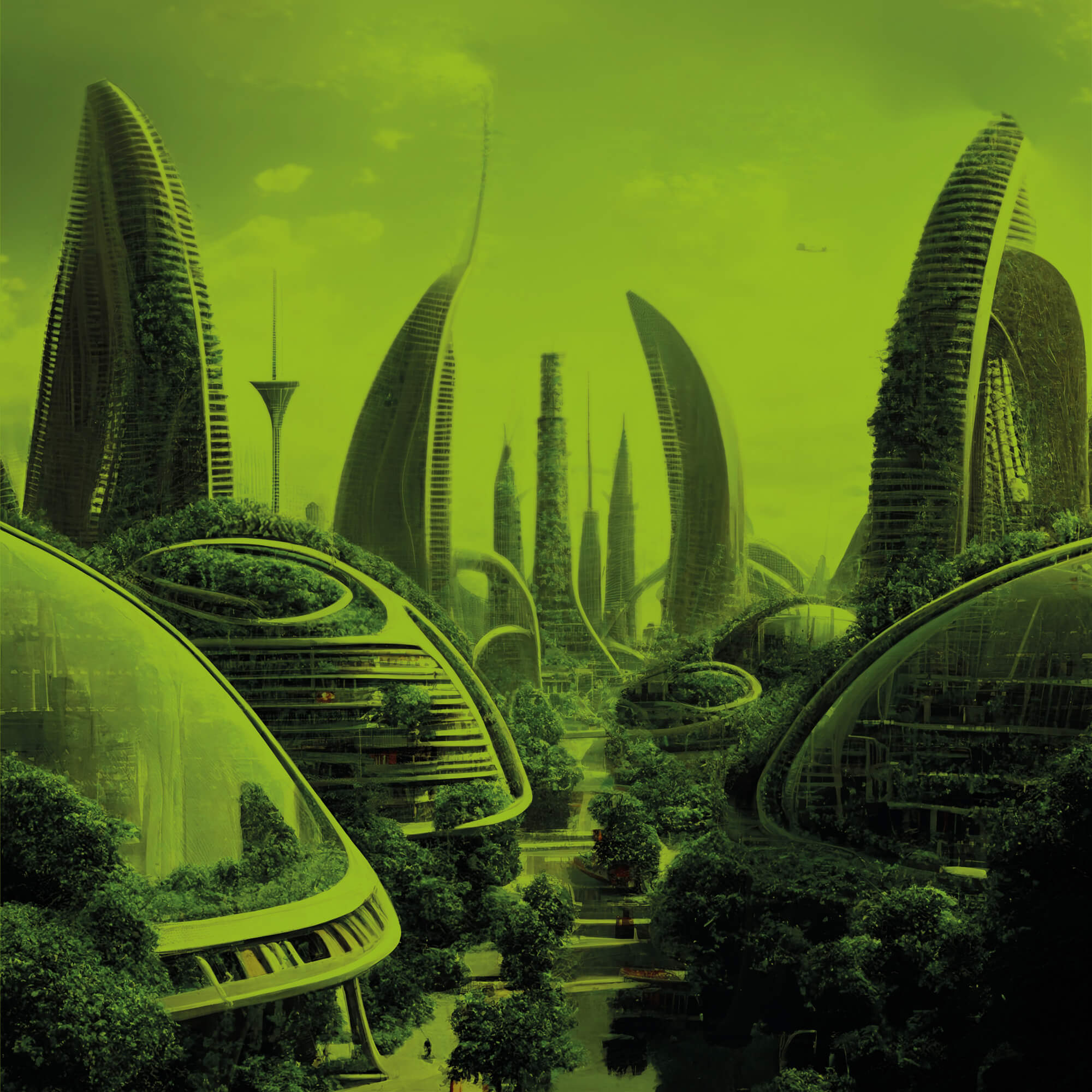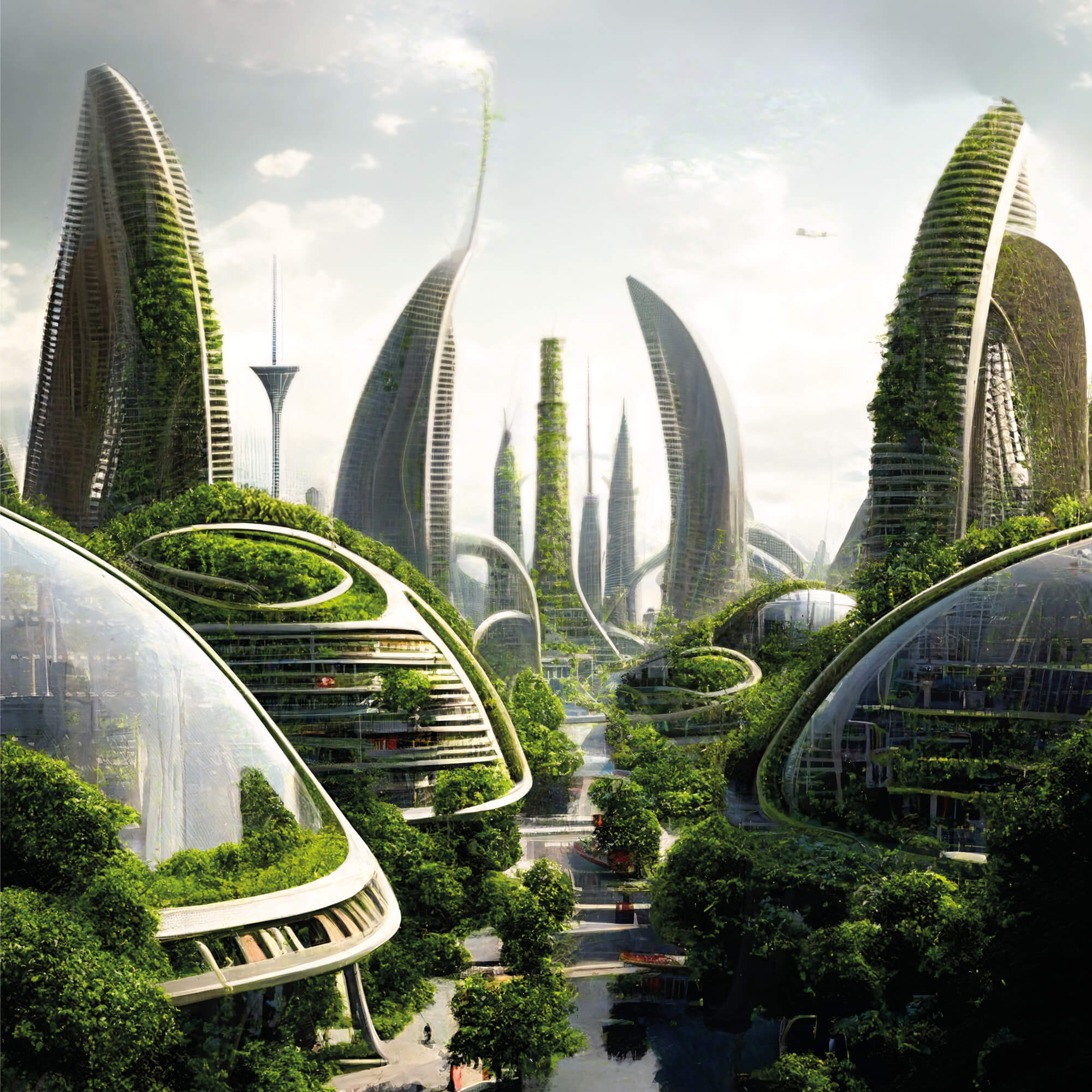A truly beneficial city as designed by AI

The topic of current AI capabilities is dividing society and industries across the world. But the truth is that if we approach it openly and try to make the most of it, we will get a head start. There is no escaping the vast amount of change that is already coming from its application. So why don't we let AI (*artificial intelligence) create the cover and editorial of the new issue of our company magazine?
The topic offered itself - how does it imagine a truly beneficial city? Within the features and characteristics, we had it develop, it was great to see a strong representation of working with greenery on the buildings themselves. Just like our Living Buildings do.
1.
First, we asked the text-based artificial intelligence ChatGPT to provide a detailed definition of a city that benefits its inhabitants and the surrounding environment. We had it rewrite the result to define its findings visually. Just as it would try to describe such a city to a visually impaired person.
2.
We then passed this description to another AI, MidJourney, which can generate images, photos, graphics and more based on the text. And it does so in a completely detailed way.
And this is how the AI sees it:

"Imagine you are walking down a busy city street. Tall grey buildings tower over your head, casting long shadows on the busy crowds below. The noise of traffic and construction work fills the air, and you can feel the heat radiating off the pavement. It's not exactly the city of your dreams. But what if we could transform the current urban landscape into lush green parks that would benefit both the people who live and work in them and, ultimately, the surrounding environment? By covering our buildings with greenery, we can create a more sustainable and liveable urban environment that is a real asset.
Let's start with the benefits for us - the residents. Greenery on buildings can create natural insulation that helps regulate indoor temperatures and reduces the need for heating and air conditioning. Not only does this save money on energy bills, but it also promotes a healthier indoor environment in which to live (and work).
In addition, plants on buildings can have a positive effect on mental health. Studies (and often our own feelings) show that being in nature can improve mood and reduce stress or anxiety. A view of greenery from inside a building or the opportunity to step outside onto a green roof garden or terrace can help people feel more connected to the outside world and promote a sense of calm and well-being.
And what about the benefits for nature? The environment if you like? By covering buildings with greenery, we can help reduce the urban heat island effect. This occurs when buildings and other infrastructure absorb and retain heat, creating a pocket of warm air that can end up several degrees warmer than surrounding areas. Green roofs, facades, and other forms of green applications can help mitigate this effect by providing shade, reducing heat absorption, and increasing evapotranspiration.
Greenery on buildings can also help reduce stormwater runoff. Traditional building materials, such as concrete and asphalt, do not absorb water, allowing it to run right off and cause flooding or erosion. In contrast, green facades and roofs absorb rainwater and release it slowly over time, reducing the amount of runoff that ends up in nearby waterways.
Finally, greenery on buildings can support biodiversity. By creating green spaces in the city, we provide habitat for birds, insects, and other wildlife that would otherwise have nowhere to live, which can help restore the balance of urban ecosystems that have been disrupted by our presence and activities. In conclusion, covering buildings with greenery is not only a beautiful and aesthetic solution to an often monotonous urban landscape but also an important step towards creating a more sustainable and liveable urban environment."
Do you see it the same way?
If so, join us and let's green your building:





